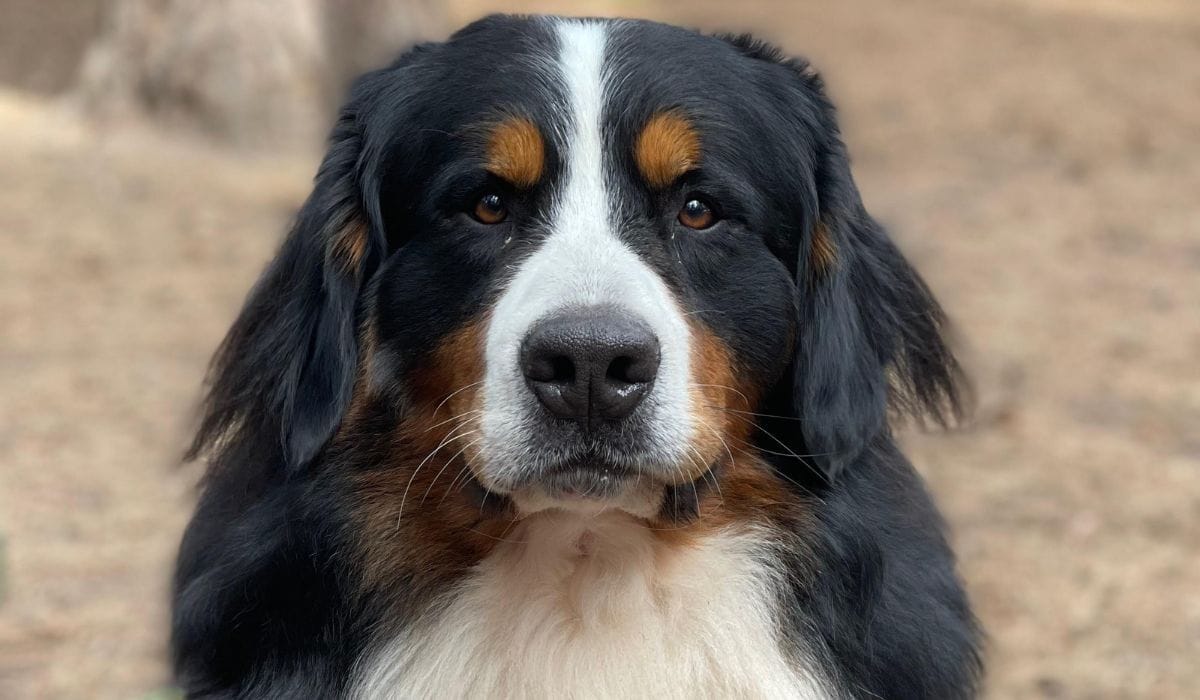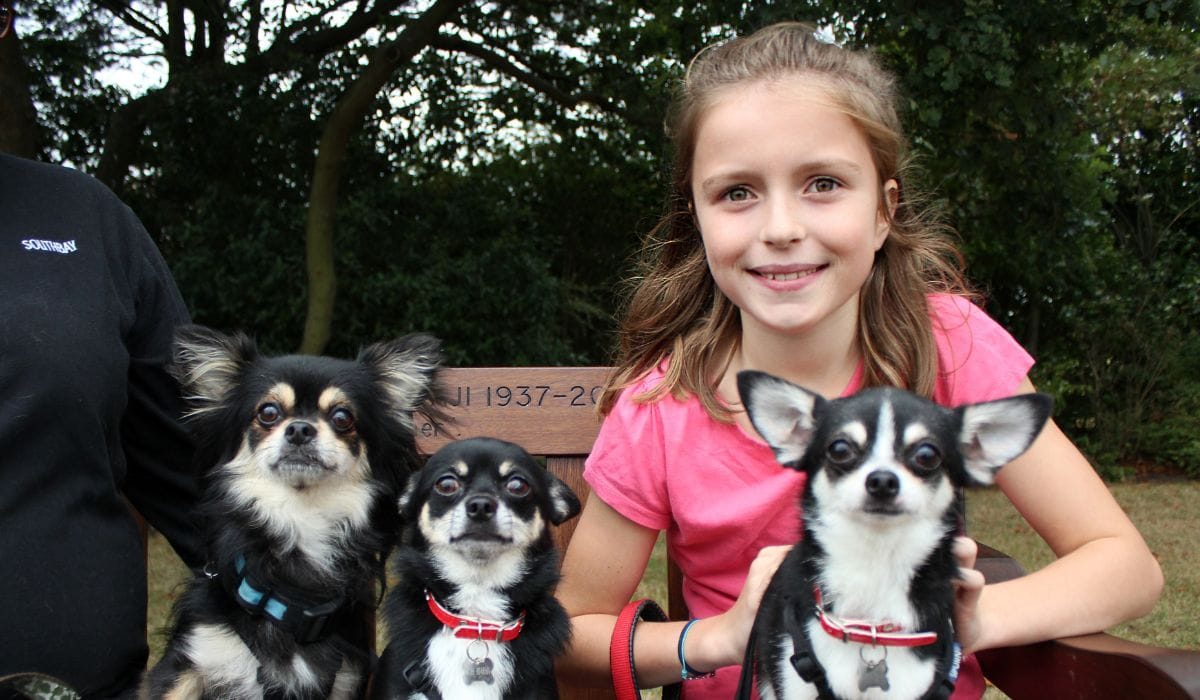Reviewed by Dr Jill McMaster BVM&S MBA MRCVS, Veterinary Surgeon and in-house expert at BorrowMyDoggy on 26 May 2023
So you’re going to get a new dog, you’ve done your research on different options including rescues and breeds, and you’ve made the decision that you’re ready for a new pup and what breed you’re looking for. So how can you buy a new dog responsibly?
Summary
What to do when picking up your pup?
How to find a puppy
There are lots of sites out there advertising puppies for sale. It can be difficult to wade through which ads are good or not. If you are looking for a pedigree puppy though the Kennel Club website can be a great tool, to find KC registered breeders.
Age
No-one should be offering puppies to be re-homed at less than eight weeks old. They should be at least this age when you take them home.
If puppies are imported from abroad, they should be at least 15 weeks old before entering the country, as they cannot have their rabies vaccination until 12 weeks old, then cannot travel until 3 weeks later. If you are getting a puppy from abroad, unless you know the breeder or they are from a reputable charity, then there is an increased risk of not knowing exactly where they came from.

Visits
Speak to the breeder and ask lots of questions before planning to visit the puppy - did they breed the puppy or did someone else? Did either of the parents or any of the puppies have health problems? Has the mum had pups before? If the breeder asks you lots of questions, don’t be offended, it often just means they are keen to make sure you are the right person for their pup. Just make sure you get a chance to ask everything you want to.
You should arrange to meet the puppy at the breeder’s home at least one time before the day you take your puppy home, more often if possible!
You should be able to meet the puppy's mum, other littermates and if possible dad (although it is not uncommon for dad to live elsewhere, but most people can show you a pic).
Home visits also allow you to get to know your puppy and their personality before taking them home. It also lets you see what kind of environment the puppies have been in and how they interact with the family etc.

It has been known for unscrupulous breeders to show another dog and pass her off as the dog’s mother, but usually, although unhelpfully not always, she should still have developed teats if she has been feeding them, and will clearly have a relationship with the pups, although again sometimes, some mothers can stop interacting with the pups so much when they stop feeding them.
If the breeders claim mum is out for a walk, say you’ll wait for her, or if they offer to meet you in a public place or drop the puppy off at your house instead, before you have had a house visit at theirs, say no, these can be potential signs of puppy farmed puppies.
Medical Records
Always ask to see their medical records. Have they had worming and flea treatment and their vaccinations? It may be when you visit they haven’t had any vaccinations or their microchip yet as they are too young, but breeders should be able to advise when they are planning to do that.
Pedigree
If you are buying a pedigree, make sure you see the Kennel Club registration papers and parents’ hereditary disease screening certificates where applicable. Disease screening certificates are particularly useful in breeds with genetic conditions that are tested for. The Kennel Club has more information on this.
Trust your instinct. If something doesn’t seem right, walk away. You can also report them to SSPCA or the RSPCA (anonymously if you want) if you have any concerns.
Where to find a puppy?
Kennel Club Certified Breeders
You can go straight to the Kennel Club website to browse certified breeders. They provide a list of assured breeders with the aim to ‘promote good dog breeding practices and help puppy owners find responsible breeders’. These breeders have met certain standards and acquired a certificate to prove it.
Bear in mind, you should still follow the steps listed above as they are relevant no matter where you find a breeder.
Adopt
Just as breeders are seeing an increase in demand, adoption centres are seeing longer waiting lists to match dogs to their forever homes.
Adoption websites and rehoming centres provide lots of useful information about their dogs. You can filter dogs by whether they are good with children or cats, their age, size and breed.
Rescue centres will have assessed the animals to determine whether they need a quiet home, more exercise or continued training which can allow them to match you to a dog that suits your knowledge and ability as well as your wants and needs.
Currently, the adoption fee at the Dogs Trust is £260 for puppies and £205 for an adult dog. For puppies under 6 months old, they also require the completion of dog school (the cost of £55 is included).
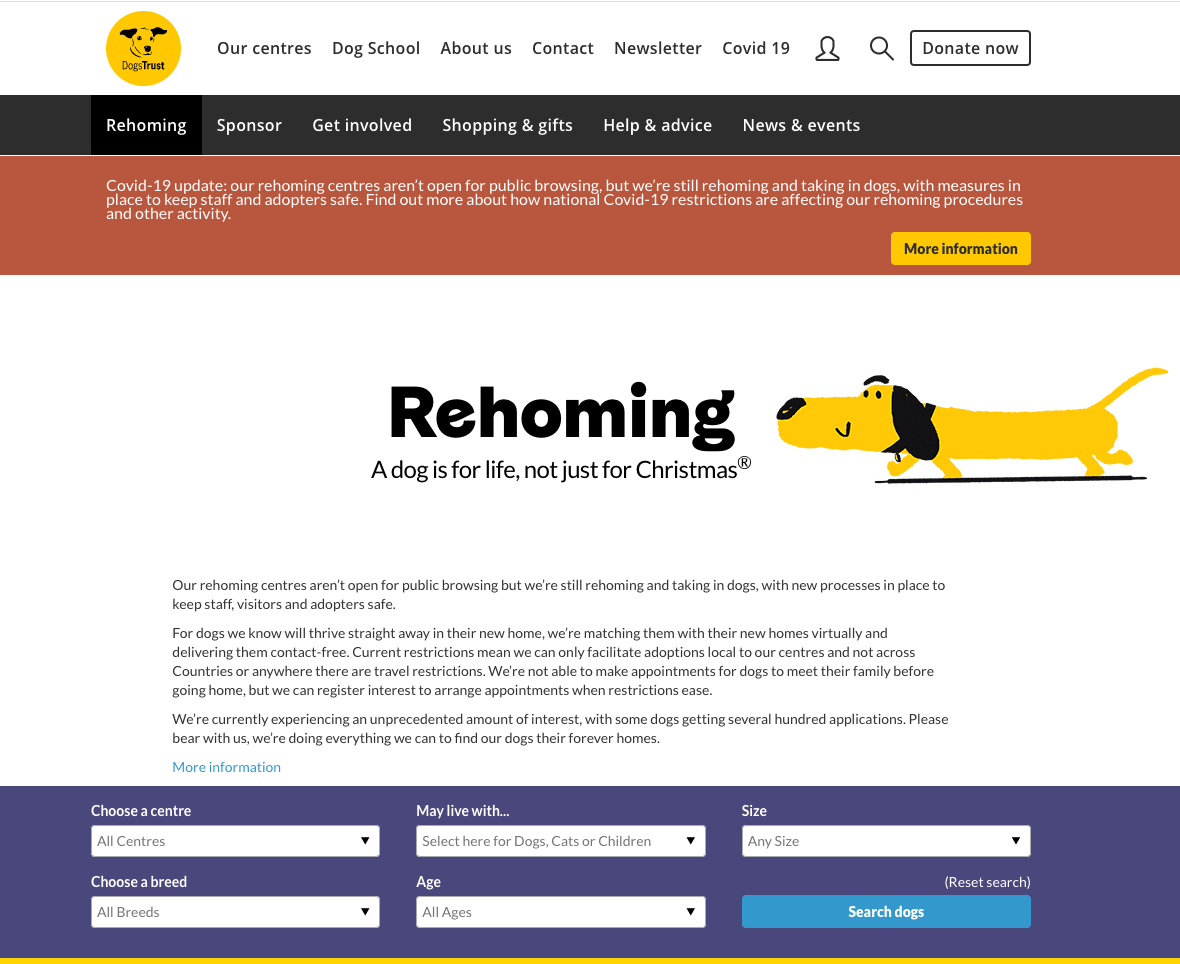
These charities also offer a lifetime of support. So if you ever have questions or concerns, you will always have the ability to turn to them for advice.
Borrow a dog
If you are feeling a little overwhelmed by the choices and you just want more time to decide, how about borrowing a dog first?
BorrowMyDoggy gives you the opportunity to walk a dog, look after them for a day, or longer, like holidays, without the commitment of ownership! It may even be a better solution for your current circumstances than buying or adopting a dog.
BorrowMyDoggy is all about building a long-lasting friendship between dog owners and their borrowers whilst creating a mutually beneficial arrangement. It could be a great way to introduce your kids to a dog and teach them how to care for them. Learning about the routine, feeding and grooming your favourite breed could help in your decision making process.
Once you have your own pooch, you could even create them a profile and find borrowers or other dogs to socialise them with!
Read more on how it works!
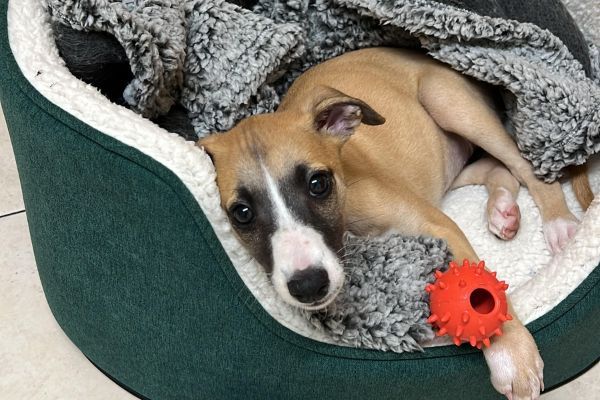

What to do when picking up your pup?
Again, because it’s so important, trust your instinct. If something doesn’t seem right, walk away. You can also report them to the RSPCA or SSPCA if you have any concerns. I know the puppy might seem super cute and lovely, but if the situation isn’t right but you go through with the sale, that can encourage the breeder to do it again.
Food
Ideally you should leave the breeders with some of the puppies normal food. You don’t have to keep them on that brand long term, but it settles their transition and their tummies, if you have a bit of their current food and slowly mix it with what you are wanting to feed them.
See our guide on best puppy food.
Smells
Some breeders will offer a bit of blanket or something that smells of their mummy. Even bringing your own and giving it a rub over mum, with permission of course, can take a familiar smell home with your pup.
Paperwork
Always leave with all their paperwork. If a breeder says your pup has been microchipped and/or vaccinated (the chip at least should be done by 8 weeks) or has Kennel Club papers then leave with this documentation. Although some breeders may have simply misplaced them, this can sometimes be a red flag that the dog has not had these treatments or registrations done.
Have a record of when they have been wormed/flea treatment etc. so you know when they need their next treatment.
Vet
Ask for the name and address of the vet they have visited previously. In case you have any queries, it’s good to know where the pup has been before. Usually the vet information is on your pup’s vaccination card. If the information they give is different on the card, ask why.
On the road
Bringing someone with you is ideal, so that they can tend to them and settle them in the car if you're driving to pick them up. A puppy incontinence mat is also useful in case your pup has a little accident in the car. Pups can’t hold their toilets as long as older dogs, and can occasionally get a little car sick, especially if it’s their first time on the road. A cosy carrier or doggy seatbelt can be useful to make sure your pup is safe and legal in the car.
Getting a puppy can be a wonderful experience, but just make sure to keep some practical points in mind, so you can get the right pup for you!
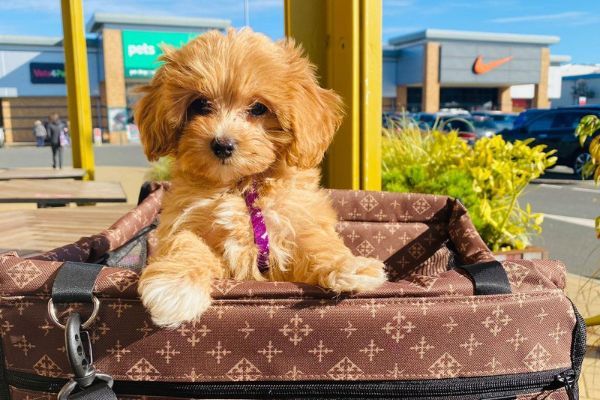
Other useful puppy guides
Everything you should know before getting a puppy
Where and how to buy a dog responsibly


